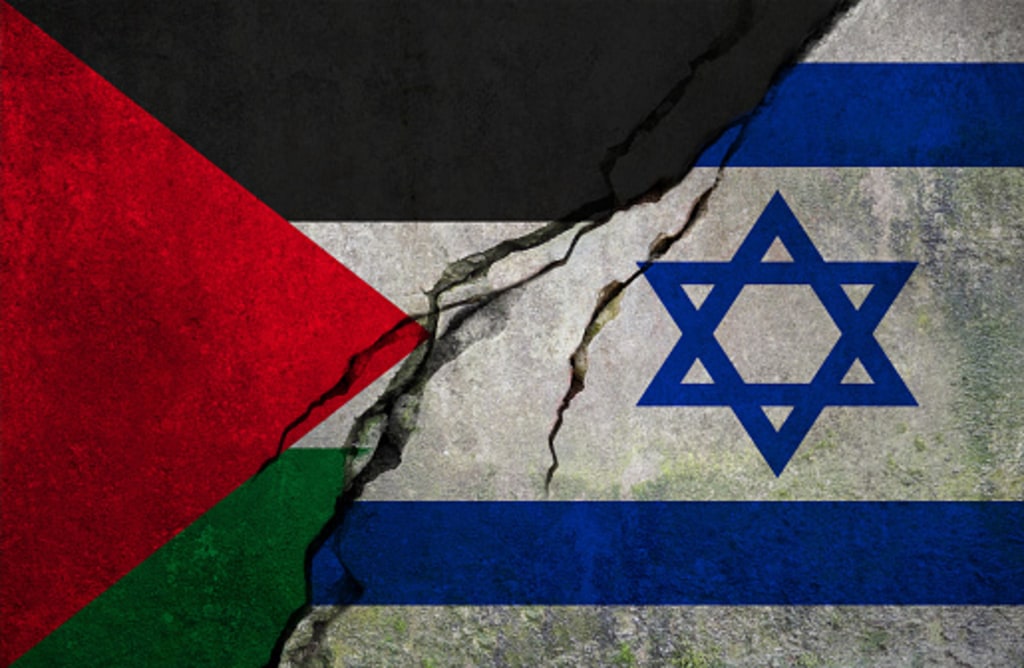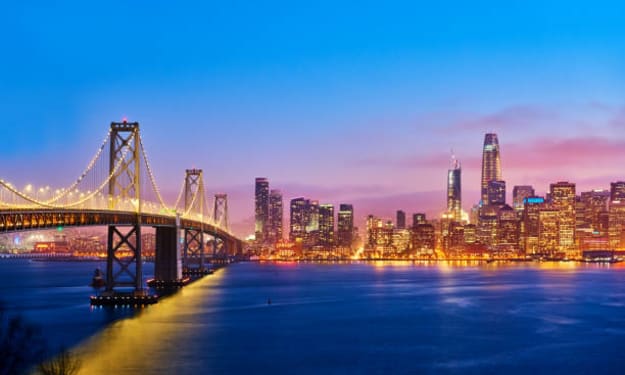An overview of the history of the Israel-Palestine conflict
A brief simple explanation on the conflict

One of the major illusions surrounding the Israel-Palestine conflict is that it has been going on for centuries and that it is all the result of old religious animosities. While religion is a factor in the dispute, two groups of people who are vying for ownership of the same property are really what's at the heart of it. And the earliest period covered, the early 1900s, is really only around a century old.
The area in the eastern Mediterranean that is today known as Israel and Palestine had been ruled by the Ottoman Empire at that time for many years. There were many different religions represented there, the most of which were Muslims and Christians, with a tiny minority of Jews, who coexisted peacefully. Two significant changes were also occurring.
Initially a growing number of individuals in the area began to identify as Palestinians, a separate national identity, rather than just Arabs by ethnicity. A movement known as Zionism, which claimed that Judaism was not simply a religion but also a nationality deserving of its own nation, was gaining support at the same time in Europe. More Jews were embracing this movement. Many Jews also thought a Jewish state would be their sole safety after decades of persecution. And they considered their best chance of building it to be in the Middle East, their ancestral home. Tens of thousands of Jewish people from Europe migrated there in the early 20th century.
The Ottoman Empire fell after World War One, and the British and French Empires carved the Middle East by assuming control over a region they dubbed the British Mandate for Palestine. The British initially permitted Jewish immigration. However, hostility between Jews and Arabs increased as more Jews immigrated and settled in farming communes. Violence was used by both sides. The British also started limiting Jewish immigration by the 1930s. Jewish militias responded by created to oppose both British rule and the presence of the local Arabs.
Following the Holocaust, a large portion of the globe came out in favor of a Jewish state, prompting many more Jews to leave Europe for British Palestine. A plan to divide British Palestine into two distinct states—one for Jews, Israel, and one for Arabs, Palestine—was endorsed by the UN in 1947 as violence between Jews and Arabs there increased. Jerusalem was intended to be a special international zone because it is home to sacred sites for Christians, Muslims, and Jews. The goal of the plan was to cease the sectarian violence that the British could no longer control, create a state for the Jews, and establish Palestinian independence. The Jews endorsed the proposal and proclaimed Israel's independence. However, Arabs throughout the entire region perceived the UN proposal as nothing more than another attempt at stealing their territory by European colonialism.
Many Arab nations, many of which had only just attained their own independence, went to war with Israel in an effort to replace the entire British Palestine with a single Arab Palestine. The conflict was won by Israel's nascent state. However, they significantly overstepped their UN-approved borders in the process, capturing much of the land that was supposed to belong to Palestine as well as the western half of Jerusalem. Additionally, they drove a large number of Palestinians from their homes, leading to the creation of a sizable refugee population, who’s offspring currently number about 7 million.
All of the territory was under Israeli control by the end of the conflict, with the exception of Gaza, which Egypt held. Jordan controlled the Jordan River, and the area to the west of it was given the designation West Bank. The protracted Arab-Israeli confrontation started at this point. Many Jews in nations with a plurality of Arabs escaped or were expelled during this time, landing in the State of Israel. The dispute then changed as a result of what had happened. In 1967, Israel and the nearby. Another conflict sprang out amongst Arab nations. At its conclusion, Israel had taken the Golan Heights from Syria, the West Bank from Jordan, and from Egypt, the Sinai Peninsula and Gaza.
All of Jerusalem and its sacred sites were now under Israeli occupation. Israel was now left in charge of the Palestinians, a people it had fought for many years. The Camp David Accords, mediated by the US, were signed by Israel and Egypt in 1978. As a result of a peace agreement, Israel returned Sanai to Egypt. This was a hot topic at the time in the Arab world. Anwar Sadat, the president of Egypt, was assassinated in part due to resentment about it.
However, it signaled the start of the greater Arab-Israeli conflict's resolution. The other Arab states progressively made peace with Israel during the following few decades, even if they never formally ratified peace agreements. However, the Israeli force was still in control of the West Bank's Palestinian regions. and Gaza, at which point the situation turned into an Israeli-Palestinian conflict. In order to establish a Palestinian state, the Palestinian Liberation Organization was founded in the 1960s. State, even though terrorism, fought against Israel. At first, the PLO sought to completely abolish the state of Israel by claiming all of what had been British Palestine. Years of conflict between Israel and the PLO, including an Israeli invasion in 1982, were experienced. To expel the gang from Beirut, Lebanon.
Later, the PLO declared that it would agree to a land swap partitioning Israel and Palestine, but the battle went on. During this time, a significant change was occurring in the Israeli-occupied Palestinian territory. Israelis were encroaching on these areas. Regardless of whether Palestinians wanted them there or not, these people—called settlers—made their homes in the West Bank and Gaza. Some people relocated for religious reasons, others because they wanted to annex the area for Israel, and still others did so simply because of the affordable housing—which is frequently sponsored by the Israeli government. Some settlements are large cities with thousands of residents, while others are remote little towns in the West Bank. Soldiers follow the settlers to protect them, and as the settlements expand, Palestinians are ejected from their land and towns are split in two.
For Palestinians, they make the occupation far more traumatic in the short term. They make it much more difficult for the Palestinians to ever have an independent state in the long run by dividing up Palestinian land. Despite the international community's efforts, there are already several hundred thousand settlers in occupied land. The community deems them unlawful. Palestinian resentment culminated in the Intifada, which is the Arabic word for uprising, by the late 1980s. Most of the protests and boycotts were at first peaceful, but they quickly turned violent, to which Israel reacted violently. In the first Intifada, a few hundred Israelis and over a thousand Palestinians perished. At about the same time, some Palestinians in Gaza who believe the PLO is too secular and Hamas, a violent extremist organization committed to destroying Israel, was born as a result of too many compromises.
It is evident by the early 1990s that Israelis and Palestinians must come to peace, and leaders and from both sides, the Oslo Accords are signed. This is supposed to be Israel's significant, first move toward perhaps withdrawing from the Palestinian Territories in the future. Territories and allowing Palestine to become independent. As a result of the Oslo Accords, the Palestinian Authority was established, giving Palestinians some a little autonomy to self-govern in some areas. Hardliners opposed the Oslo Accords on both sides. Hamas members detonate suicide bombs to attempt to obstruct the process Israeli right-wingers oppose peace negotiations, and at demonstrations they brand Prime Minister Yitzhak Rabin a Nazi and a traitor.
Rabin is assassinated in Tel Aviv by a far-right Israeli not long after he signs the second phase of the Oslo Accords. This carnage demonstrated how terrorism may be used by fanatics on both sides to thwart peace and maintain an ongoing war while aiming to completely destroy the opposing party. Since then, it has been the dynamic. Years of negotiations are spent working out the last few aspects of the peace, and the 2000 Camp David Summit is unsuccessful. Palestinians rise up in a violent Second Intifada after realizing that peace is not on the horizon in the initial.
A few years later, when it came to an end, 3,200 Palestinians and 1,000 Israelis had perished. Actually altering the war is the Second Intifada. Israelis were increasingly skeptical about Palestinians will ever accept peace or even believe it's worthwhile to try. Right-wing political movements in Israel lead to the construction of checkpoints and walls to restrict Palestinian movement. They are merely managing the problem now rather than actually trying to resolve it. The Palestinians are left with the impression that both negotiation and violence were ineffective. They have no future as a people and are trapped under a constantly expanding occupation. Israel departs from Gaza that year gaining control, Hamas breaks from the Palestinian Authority in a brief civil war that separated the West Bank from Gaza. Israel imposes a strangling embargo on Gaza, and unemployment increases to 40%. The conflict is now in this situation as far as we are aware.
For Palestinians, it is intolerable while being relatively new. Palestinians in the West Bank are being suffocated by ever-increasing settlements; in response, they frequently demonstrate and occasionally resort to violence, but most merely want to live regular lives. Israel and Hamas occasionally engage in conflict in Gaza. Palestinians are killed in large numbers during the battle, including many civilians. Most Israelis are now apathetic, and the occupation largely keeps the conflict at a distance from their daily lives, with occasional but horrifying flashes of violence. Little political will exists for peace.
Nobody is entirely sure where the fight will go from here. Possibly the Third Intifada. The Palestinian Authority might fall apart. However, everyone acknowledges that the current situation can't continue for much longer due to Israel's occupation. Palestinians is too unstable to last, and whatever happens next will be considerably worse unless something drastically different occurs. One of the most pervasive misconceptions about the Israel-Palestine conflict is that it has been going on for centuries and is solely the result of old religious animosities. While religion is involved, the dispute is actually mostly between two groups of individuals who assert the same country.






Comments
There are no comments for this story
Be the first to respond and start the conversation.